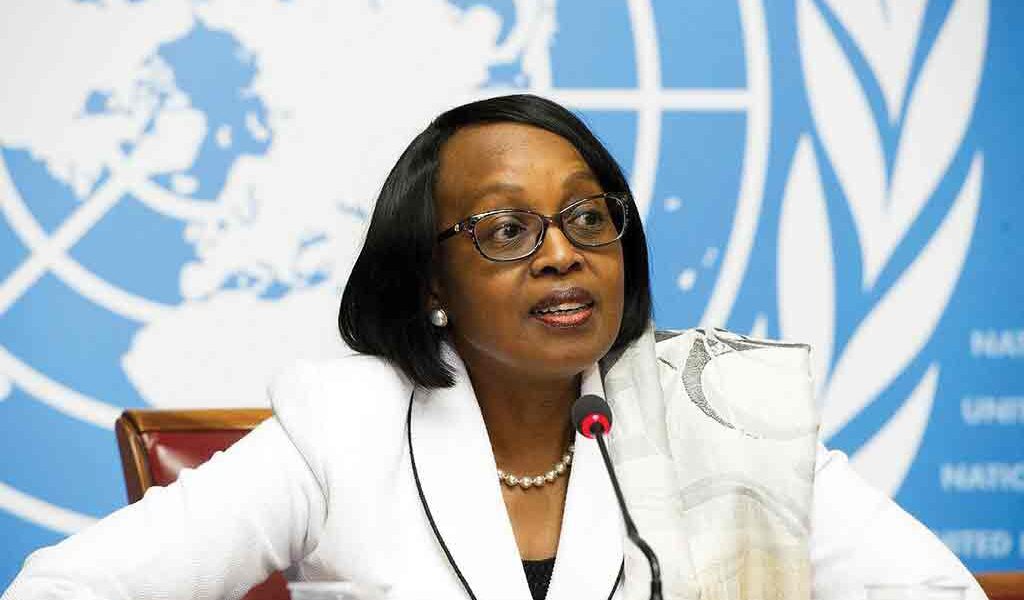- To assess health standards, make recommendations
- To assess political commitment, financing, quality service delivery and policies
- Ministry bars civil society from meeting regional director
- Can she convince gov’t on discriminatory health policy?
TEFO PHEAGE
Dr Matshidiso Moeti, the first female World Health Organisation (WHO) Regional Director for Africa who also happens to be a Motswana is in the country in a visit that is expected to discuss a lot of burning issues regarding Botswana’s health standards and other developmental issues in relation to health.
The visit which is her first official trip to the country since assuming her highly powerful position in 2015, is expected to discuss a variety of issues including health policies, financing, quality service delivery and above all, the country’s political commitment towards health.
She will meet the Vice President, Mokgweetsi Masisi, Minister of health, Dorcus Makgato, Permanent Secretary in the Ministry, Shenaaz El-Halabi, MoH Senior Management and Selected District Health Management Heads , Minister of International Affairs and Cooperation; then visit the Sir Ketumile Masire University Hospital where she will be hosted by Minister of Tertiary Education, Research, Science and Technology Dr Alfred Madigela and MoH assistant Minister Makgalemele; then go to WHO Botswana office, and visit SADC Executive Secretary, Dr Stergomena Lawrence Tax among many others.
Her visit comes at a time when Botswana has made notable strides in the health sector notwithstanding a few problematic areas. Currently the Ministry of Health and Wellness is undergoing a restructuring process that is aimed at achieving quality service delivery. The exercise is expected to roll out many experts from the headquarters to the communities where services are mostly needed. Botswana just like the rest of the world is facing pressure to establish and maintain the core skills needed to thrive in a rapidly changing health market.
The landmark visit by Dr Moeti, a physician, public health specialist and medical administrator, is expected to improve performance by evaluating every key operational, clinical and governance function in the country and health experts suggest that her visit will have long lasting benefits on the country’s health development.
Human rights advocates will also want to see and hear of her contribution in important battlefronts for HIV which are not adequately covered or constrained by non- progressive policy and legislative action. Such areas include the key populations like sex workers, homosexuals and prisoners sex as well as foreign prisoners who have been denied treatment by the government.
WHO has noted a diversity of situations within which civil society organisations (CSOs) currently interact with the state around health goals.
It is through state and CSOs interaction and collaboration in the different spheres of health governance and action (policy, health promotion, service provision, community outreach, resource mobilisation and monitoring health systems) that quality and times service delivery was achieved.
CSOs are frequently observed to be a source of experience, expertise and information. Numerous studies indicate that CSOs provide new insights and approaches to people-centred and participatory development.
They pioneer and provide services to communities poorly reached by the state or market and further promote transparency and accountability in decision-making, create livelihoods and economic opportunities and promote human rights and improved justice systems. In many cases they also facilitate policy change in states and societies to reflect people’s circumstances and needs.
Botswana Network on Ethics, Law and HIV and AIDS (BONELA) Director Cindy Kelemi said as civil society “there are a lot of issues that we would like to share and engaged the director on, particularly the issue of external funding discontinuation which is a confusing transition in the delivery of health services on our part among many others,” she said. The importance of CSO in health care delivery systems, Kelemi added, cannot be under-rated in Botswana as they play a central role in service delivery and development of democracy.
WHO ‘s position on health
The WHO constitution enshrines “…the highest attainable standard of health as a fundamental right of every human being.” According to WHO, the right to health includes access to timely, acceptable, and affordable health care of appropriate quality. This is the agenda the Director is expected to push in all her engagements.

